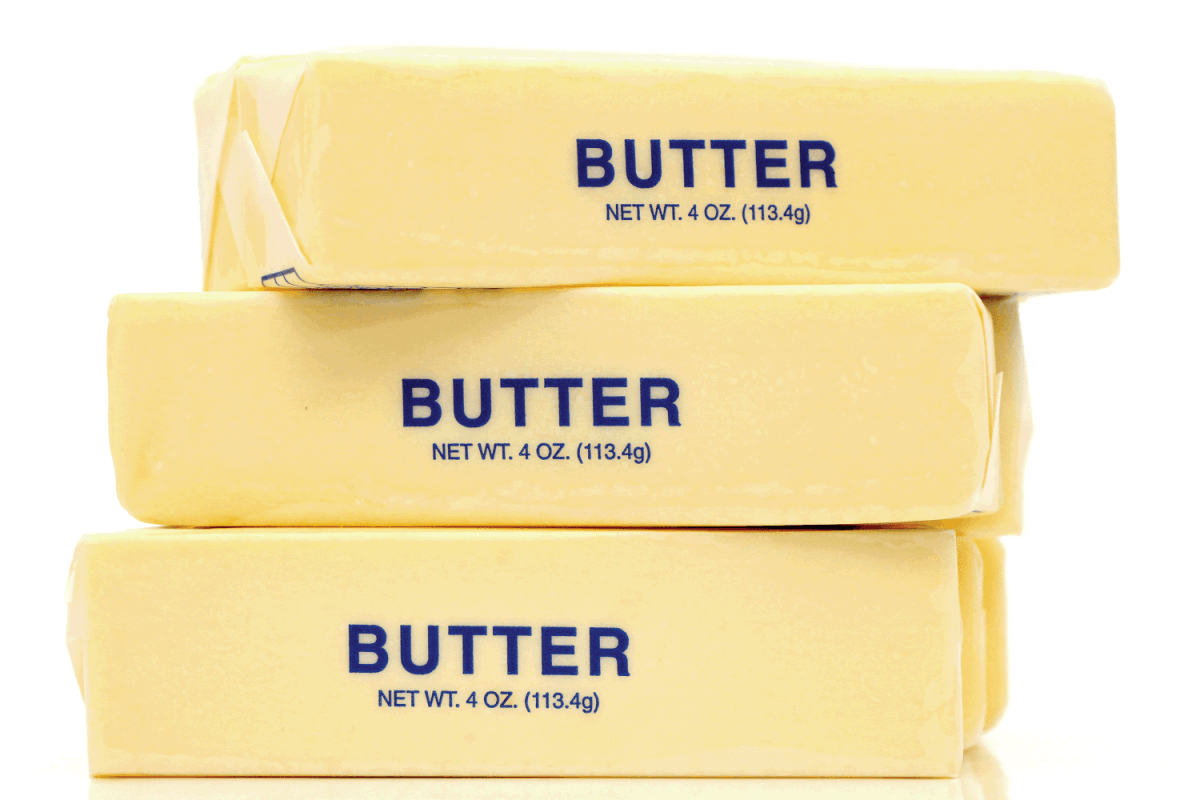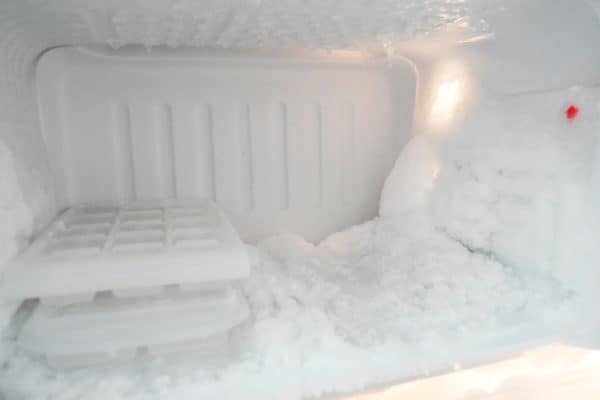Butter is a vital ingredient in a variety of baking recipes. Getting the right softness of the butter is crucial in baked goods. Room temperature ingredients give the best results in baking. If the butter is too cold, it will not emulsify well which makes less satisfying results. With the purpose of making the butter work its best for your baking needs, we have researched tips from experts on how to soften butter at room temperature.
Butter takes at least 3 to 4 hours to thaw at room temperature of around 65° Fahrenheit. Room temperature butter is best because it absorbs the maximum amount of air. If butter does not soften properly, it affects the results of your recipes. Whether you use salted or unsalted butter, your kitchen must have a temperature lower than 70° Fahrenheit to avoid any spoilage.
If your recipe calls for room temperature butter, you must avoid melting the butter when you use it in baking. Other ingredients in the recipe mix well at room temperature. As much as possible, you do not want to have clumpy frosting, chunky cheesecakes, or oily muffins. Read further to find out how to get room temperature butter.
NOTE: WE MAY GET A COMMISSION IF YOU DECIDE TO MAKE A PURCHASE THROUGH THESE LINKS. THERE'S ADDITIONAL NO COST TO YOU. CHECK THE BOTTOM OF THE PAGE FOR MORE INFORMATION.

How To Defrost Butter
Different recipes call for different types of butter. Butter can make or break your recipes. Softened butter is good for baking cakes and creating compound butter. On the other hand, melted butter is best for savory recipes. Always refer to your recipe for the required consistency of the butter. From that point on, you can choose how to defrost the butter properly.

Softening Butter At Room Temperature
Butter softens at room temperature in 1 to 4 hours. Frozen butter takes 3 to 4 hours, while butter from the refrigerator can take 1 to 2 hours at the kitchen counter. The temperature of the kitchen and the overall weather also affects the time needed for butter to soften. Softened butter at room temperature is cool to touch but will not be warm. To check if the butter is already soft, poke it with your clean finger.
Thawing In The Fridge
If you want to thaw frozen butter, let it thaw in the refrigerator for at least 8 hours or overnight. Thawing in the fridge will not allow any heat to come in contact with the butter. It has a shelf-life of about 1 to 3 months in the refrigerator.
Grating Frozen Butter
If you have a big block of frozen butter, the suggested way to easily defrost it is by grating. You only need your box grater and a bowl. Grate the butter using the widest pore size of the grater. You will have soft butter ready for use after 2 to 3 minutes.
Cubing Butter
Cutting the butter into cubes saves you time waiting for the butter to soften. Just cut the butter sticks into half an inch pieces or even smaller. It takes 5 minutes to soften the butter. By cutting butter into cubes, it increases the butter's temperature by 5 to 10 degrees. The smaller the cubes, the quicker the butter softens.
Water Bath
To defrost the butter, place the unwrapped butter in a sealed plastic bag. Do not do this for butter sticks, as there are risks of over-softening. Place the bags in a bowl of lukewarm water. The difference in temperatures between the frozen butter and the water cuts down the time for softening the butter without melting it.
Microwaving Butter
Using the microwave will defrost butter quickly. Microwaving butter to make it soft takes around 20 seconds. Although microwaving saves time, butter manufacturers do not recommend softening the butter using a microwave. Defrosting butter using the microwave will likely melt it. If a recipe calls for softened butter, you will not get the best results when using melted butter. Always check what the recipe requires before microwaving.
Whatever process you would like to follow, other ingredients needed in your recipe must also be at room temperature. If cold ingredients mix with the butter, it solidifies again. Hence, this ruins the result of your recipe. To avoid this, warm the ingredients like egg and milk before mixing with the butter.

Can I Keep Butter At Room Temperature?
Based on a USDA article, you can leave butter at room temperature for 1 to 2 days. If following correct storage procedures and temperature, the butter can last up to 2 weeks. You can leave a few sticks of butter on the kitchen counter and store the rest in the refrigerator. Here are the key considerations when keeping butter at room temperature.
Type Of Butter
Even though it is okay to leave the butter in the kitchen pantry, there is a type of butter that is suitable at room temperature. According to the National Dairy Council, salted butter has a lesser chance of spoiling at room temperature than unsalted and whipped butter. Salt helps preserve the butter from bacteria. Even though salt is present, the amount of salt differs across the brands. Butter with the most salt content preserves longer.
Container
Another thing that keeps butter safe to keep at room temperature is storing it in the proper container. As much as possible, avoid storing butter wrapped in wax paper. Likewise, wrapping the butter on a plate with a plastic wrapper spoils the butter. Choose a butter dish to keep out light and air. Other options that are used for storing include a butter crock, a butter bell, or a butter keeper. These containers keep the butter soft and spreadable at a steady temperature.
Kitchen Temperature
Also, make sure that the kitchen temperature is just right for butter to soften. Keeping butter in the kitchen in very hot temperatures can spoil it. If the kitchen temperature is always above 70° Fahrenheit, it is better to keep the butter in the refrigerator, especially for unsalted and whipped butter.
Is It Ok To Put Softened Butter Back In The Fridge?
It is also okay to store softened butter back in the fridge. To avoid spoilage, transfer any softened butter left in the kitchen to the refrigerator. Just wrap the butter with additional foil to protect it from refrigerator odors. The foil prevents any light and air that spoils the butter. Aside from spoilage, foil wrapping can prevent any freezer odors to stick with the butter.
How Long Does Frozen Butter Last In The Freezer?
Frozen butter can last from 4 months to 1 year. Salted butter can stay in the freezer for 1 year, while unsalted butter only lasts up to 6 months. Make sure that the butter is not yet past its "use by" date. Even though it can stay for a long time in the freezer, the butter can start to lose its consistency and flavor after 4 months. The butter might absorb the freezer odors. If frozen butter is out from the freezer, use it within 30 days.
Can Butter Be Frozen Twice?
Butter can be refrozen. Refreezing thawed butter will not spoil it. However, refreezing thawed butter can diminish its quality. As a result, the flavor and consistency of butter change. If you want to keep the quality of the butter, get enough amount needed for your recipes.

How Can You Tell If Frozen Butter Is Bad?
To know if frozen butter has gone bad, take a look at its appearance, and check for any foul smell. Spoiled butter appears pale. Any sign of mold growing in the butter can also appear. It may also be difficult or too soft to spread the butter. Likewise, spoiled butter also smells rancid, stale, or cheese-like (like blue cheese or Parmesan).
If you want to avoid spoiling frozen butter, keep it in its original packaging. If you have no immediate plans of using the butter, wrap it in aluminum foil or plastic wrap. You can also place the butter in a freezer bag to avoid freezer burns. By doing any of these tips, you can prevent your butter from going bad.
In Closing
Butter softens as long as 4 hours when the room temperature is at 65° Fahrenheit. If you are running out of time, there are other ways to soften butter quickly. The smaller the size of the butter, the quicker it softens. Also, you cannot leave the butter in the kitchen for a long time. Freezing butter is another way to maintain shelf-life. However, freezing butter will lose its flavor and consistency. No matter what type of butter you use, good quality butter starts from proper storage.



